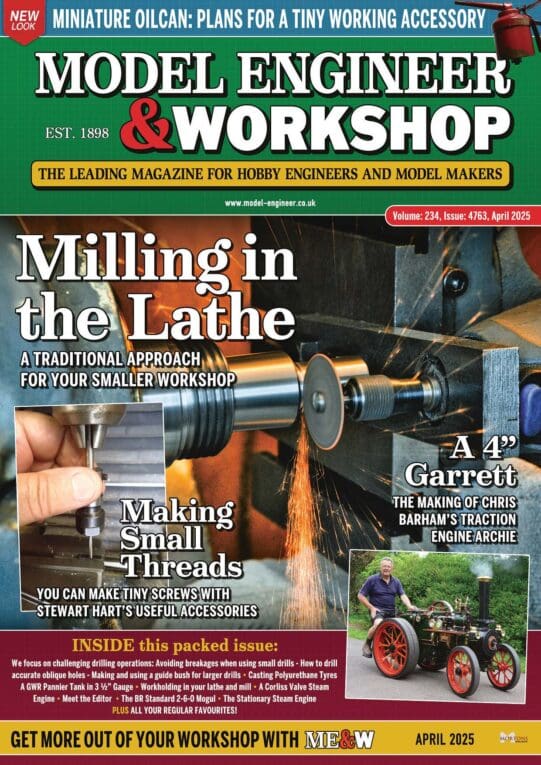Posted by Keith Wyles on 14/11/2022 17:29:39:
Questions such as this always seems to produce arguments on both sides of the Chinese / Myford et al fence. 2 other questions occur to me.
- The long term value, which will hold its value better when it comes to letting the lathe go?
- If finance and or space is (as it is for many) in short supply then using a lathe for milling may be the only option. Does this then alter which you should aim for? It was once the norm for model engineers to make do without a mill. In this case is it better to go for a greater capacity lathe?
…
A man after my own heart! I think it's important to think through questions like long term value because the answer depends on the needs of the owner. There are two extremes:
- The equipment is seen as an investment and the owner expects it to retain value. Like owning a classic motor car.
- The equipment is seen as a means to an end, where the value comes from the owner using it. Most of us drive cars in this type, not classics: not expected to last or have more than scrap value when worn out or damaged in action.
One of the reasons I have a workshop full of inexpensive tools is that I don't want it's disposal to become a problem for my grieving relatives. Dealing with a late engineers workshop can be a right pain for the executors. The old chap thought it was wonderful, but his survivors have to separate the wheat from the chaff! How much are the contents worth; who wants it; will we be ripped off. If the relatives have no idea and are under pressure to finalise the estate, there's a good chance a widow will be left with a closed workshop full of slowly rusting gear. Or the whole lot is cleared for scrap. Even if the proud owner left clear guidance, the executors may not have the time or inclination to chase around getting best value. The previous owner's pride and joy becomes a problem to be got rid soonest. My solution is to fill my workshop with tools to be used, considered disposable, and not considered to be an investment. I'm getting value out of it now, and I don't want the notion my hobby tools are worth money to become an albatross when I'm gone.
I'd think differently if anyone else in the family shared my interests. But they don't!
Milling on a lathe is frustrating because lathes lacks rigidity where needed and the workspace is small. Both restrictions are at their worst on small lathes, and become less troublesome on big ones. As Keith says, most hobby milling was done on lathes in the past, and it's not a completely daft idea. Unfortunately my experience is that even a small mill runs rings around milling on a lathe. Mills have more X,Y, Z space, are suitably rigid, and configured to support milling operations. However the call depends on personal circumstances; I decided to buy the biggest lathe and mill that would fit in my workshop with a band-saw, bench, materials and other essentials. If I'd needed a giant lathe to thread drainpipes, I might have sacrificed the mill and put up with the hassle of a vertical slide or a combination machine. But for me milling is high value, so I bought a smaller lathe.
In both cases there is no single correct answer; it depends on what the owner plans to do.
Dave
SillyOldDuffer.




